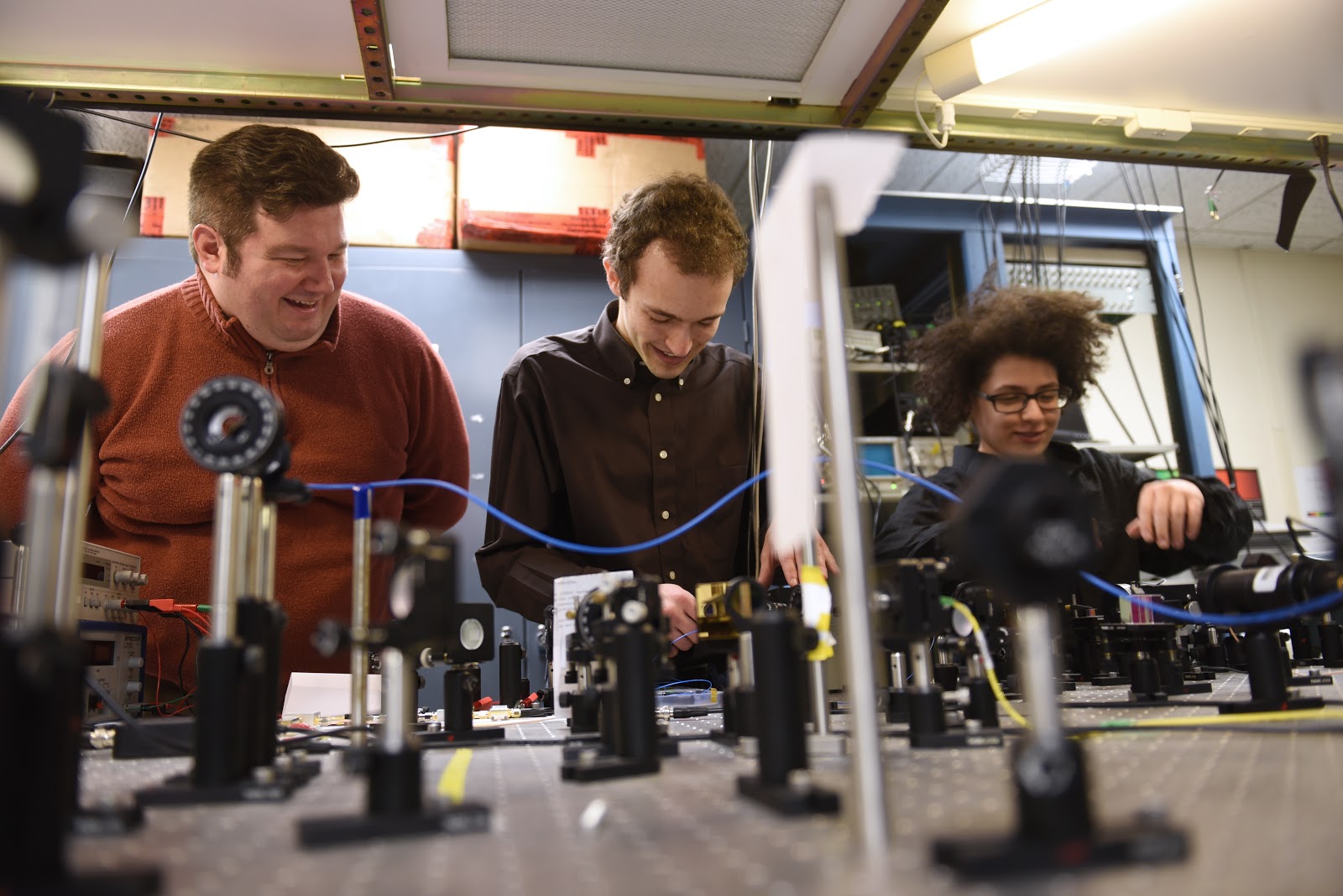As one embarks on the journey of a physics major, a plethora of traditional career paths often comes to mind: research scientist, educator, or engineer, for instance. Yet, the realm of physics encompasses a cornucopia of interdisciplinary applications that can lead to unexpected and gratifying career opportunities. Have you ever pondered what lies beyond the conventional? What if your fascination with the laws of the universe could translate into a vocation in a completely unforeseen arena? In this discourse, we shall explore a medley of unconventional career trajectories that physics majors might pursue, each laden with its own unique challenges and rewards.
1. Science Communication and Journalism
For those who possess a penchant for articulating complex scientific concepts in an accessible manner, a career in science communication or journalism may be enticing. In an age besieged by misinformation, the science communicator’s role is paramount. Imagine translating esoteric theories of quantum mechanics or the intricacies of relativity into captivating articles or documentaries that engage and educate the general populace. The challenge here lies in maintaining accuracy while nurturing creativity—essentially bridging the chasm between the scientific community and the public.
2. Finance and Data Analysis
Physics majors are well-versed in statistical analysis, problem-solving, and quantitative reasoning, making them prime candidates for careers in finance. Quantitative analysts, commonly referred to as “quants,” utilize their mathematical prowess to develop algorithms that predict market trends or evaluate risk. Engaging in this realm requires not only a strong command of physics but also the ability to navigate the often unpredictable and volatile world of finance. It poses a playful challenge: can one apply the predictability of physics laws to the chaotic dance of stock markets?
3. Patent Law
Embarking on a career in patent law is an intriguing option that expertly intertwines the realms of technology and legal expertise. Physics majors can leverage their scientific knowledge to assess the validity of patents or to represent clients in disputes over intellectual property. Engaging in this field requires additional legal education, but the payoff can be substantial. It invites the curious mind to ponder—what constitutes innovation in a world replete with scientific advancement, and how does one ensure that such innovations are protected?
4. Policy Development and Advocacy
As the world navigates critical issues such as climate change, renewable energy, and technological ethics, physics majors can play a pivotal role in policy development and advocacy. By utilizing their understanding of scientific principles and data, these individuals can influence legislation and promote evidence-based decision-making. The challenge, however, lies in effectively communicating the science to policymakers who may not possess a technical background. Can a physicist become a beacon of clarity in the murky waters of governmental bureaucracy?
5. Healthcare and Medical Physics
Although closely related to traditional physics, the field of medical physics allows for a fascinating detour into healthcare. Medical physicists play a critical role in the development and implementation of medical technologies such as imaging systems and radiation therapy devices. This career path holds the potential for profound impact—working at the confluence of technology and human health. It challenges the imagination: how does one harness the principles of physics to enhance the quality of life and advance medical science?
6. Software Development and Computational Physics
Physics majors possess a unique skill set conducive to software development, particularly in the realm of computational physics. By simulating physical systems or developing algorithms to solve complex problems, these individuals contribute to advancements across various industries—from aerospace to climate modeling. The unexpected query emerges: how can a fundamental understanding of the physical world inform the virtual environments we create? The challenge is to maintain scientific integrity while embracing the creative liberties inherent in software design.
7. Artistic Endeavors: Animation and Game Design
Physics majors may find themselves drawn to the captivating sphere of animation and game design. Harnessing the principles of motion, gravity, and light, these individuals can create visually stunning and realistic virtual worlds. This career path invites the playful consideration: can the laws of physics become the foundation of artistic expression? Additionally, the challenge involves balancing aesthetic appeal with scientific accuracy—how can one bend the rules of physics to enhance storytelling while remaining credible?
Conclusion
In conclusion, a physics major offers a gateway to an array of unexpected career paths, each rich with opportunities and challenges. Whether venturing into science communication, finance, patent law, policy advocacy, healthcare, software development, or artistic endeavors, these pathways reveal the remarkable versatility of a physics education. Each option prompts a series of thought-provoking questions—about the nature of scientific understanding, the implications of technology, and the role of creativity in the sciences. As one navigates these multifaceted trajectories, the potential for personal and societal impact is boundless. The journey may indeed surprise the inquisitive spirit, revealing a world in which the principles of physics resonate far beyond the laboratory and classroom.












